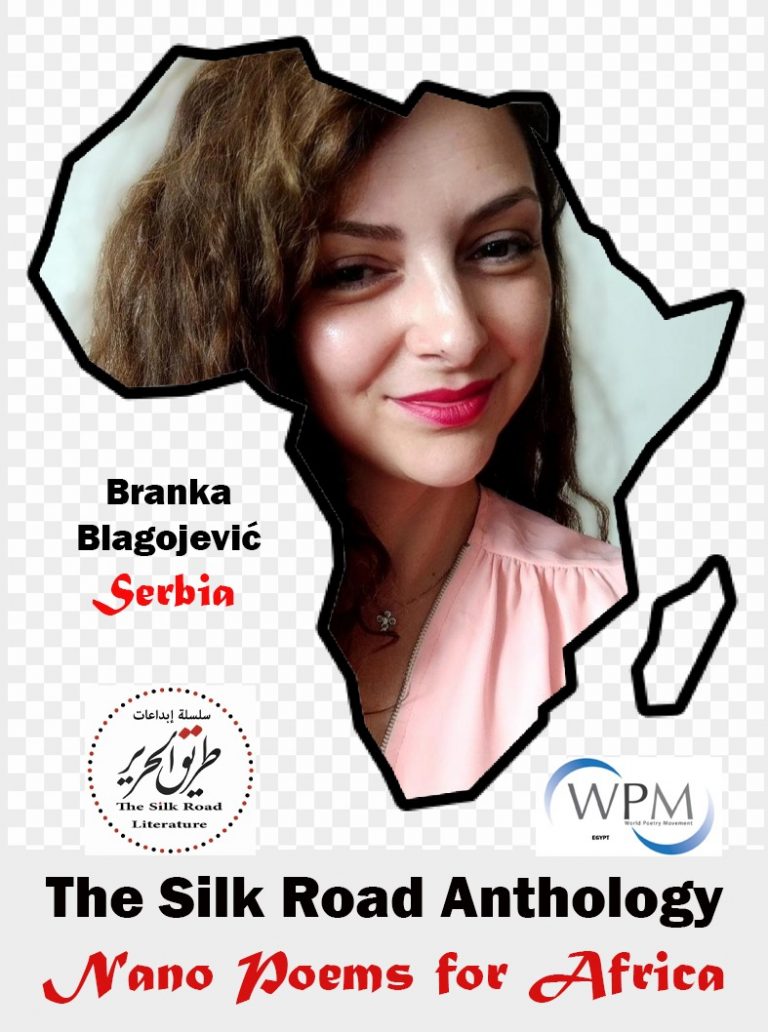
In early October, Ashraf Aboul-Yazid, founder and editor of the series, called on world poets to submit “Nano-Poems for Africa”
Sindh Courier
Cairo
The editor of the Silk Road Literature Series announced that the new edition of the Silk Road Anthology (Nano Poems for Africa) attracted the participation of 145 poets from 45 countries of six continents.
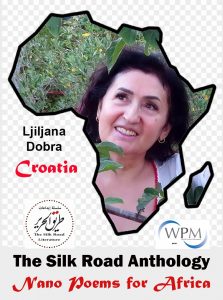 African poets participated from Egypt, Morocco, Algeria, Nigeria, and Sierra Leone, while Asia poets came from Saudi Arabia, India, Azerbaijan, Uzbekistan, Indonesia, Nepal, Syria, Lebanon, Palestine, Bahrain, Bangladesh, Brunei Darussalam, the Philippines, Jammu and Kashmir, Vietnam, Kazakhstan, and Pakistan. European participations came from Turkey, Bulgaria, Austria, Bosnia and Herzegovina, Serbia, North Macedonia, Switzerland, Italy, Greece, Sicily, Russia, Croatia, Belarus, Portugal, Montenegro, and Germany. From the Americas, poets participated from Canada, the United States, Mexico, Brazil, Guatemala, Bolivia, and Argentina, while the continent of Australia was represented by one participant.
African poets participated from Egypt, Morocco, Algeria, Nigeria, and Sierra Leone, while Asia poets came from Saudi Arabia, India, Azerbaijan, Uzbekistan, Indonesia, Nepal, Syria, Lebanon, Palestine, Bahrain, Bangladesh, Brunei Darussalam, the Philippines, Jammu and Kashmir, Vietnam, Kazakhstan, and Pakistan. European participations came from Turkey, Bulgaria, Austria, Bosnia and Herzegovina, Serbia, North Macedonia, Switzerland, Italy, Greece, Sicily, Russia, Croatia, Belarus, Portugal, Montenegro, and Germany. From the Americas, poets participated from Canada, the United States, Mexico, Brazil, Guatemala, Bolivia, and Argentina, while the continent of Australia was represented by one participant.
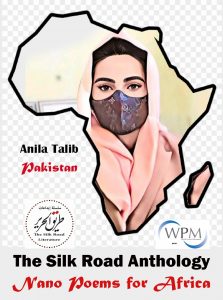 Nano Poems for Africa
Nano Poems for Africa
Nano means “very small” or “fine in size” and is used to form compound words; so (nano-poems) means those very short poems.
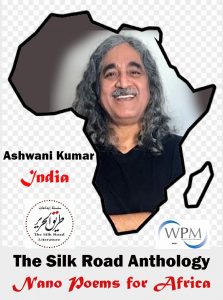 Over the past ages, short poems were written in different forms, under more than one umbrella. There is, for example, the Haiku poem, which is a Japanese poetic form of three lines; five syllables on the first line, seven on the second, and five on the third. The haiku form evolved from the hokku, the three opening lines of a longer poem known as a Tanka. Haiku became a separate form of poetry in the seventeenth century.
Over the past ages, short poems were written in different forms, under more than one umbrella. There is, for example, the Haiku poem, which is a Japanese poetic form of three lines; five syllables on the first line, seven on the second, and five on the third. The haiku form evolved from the hokku, the three opening lines of a longer poem known as a Tanka. Haiku became a separate form of poetry in the seventeenth century.
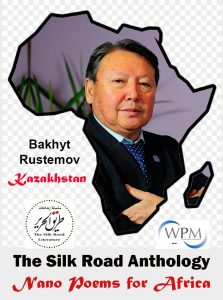 There is also one of the most famous short poems in history, the quatrains, which are metered verses and may be rhymed with four lines. The Ruba’iyat of Omar Khayyam is the best-known example of this poetic form, reminiscent of the title given by Edward Fitzgerald of his 1859 translation from Persian into English of a selection of the Ruba’iyat attributed to the poet Omar Khayyam.
There is also one of the most famous short poems in history, the quatrains, which are metered verses and may be rhymed with four lines. The Ruba’iyat of Omar Khayyam is the best-known example of this poetic form, reminiscent of the title given by Edward Fitzgerald of his 1859 translation from Persian into English of a selection of the Ruba’iyat attributed to the poet Omar Khayyam.
In early October, Ashraf Aboul-Yazid, founder and editor of the series, called on world poets to submit “Nano-Poems for Africa”:
“Let us formulate together new anthologies in the 2023 Silk Road Creations

series, and I hope they are poems that evoke the five senses; with the poetic vocabulary of sight, hearing, smell, taste, and touch.” In order to include as many participants as possible, the limit for participation was to send a (one) poem in nano form directed to Africa, accompanied by a short biography. The deadline for entries to arrive is December 31, 2022.
The previous themes of the anthology series were “Asia Sings”, “Mediterranean Waves”, “Ancient Egyptians, Modern Poets” and “Arabian Nights, World Poems”, which had a total of 888 pages with the participation of 155 poets from 40 countries and written in more than 20 languages.
The Anthology searches for new ideas and their creators, and the project has joined the activities of the World Poetry Movement, as its editor is the coordinator of the WPM in Egypt.
___________________